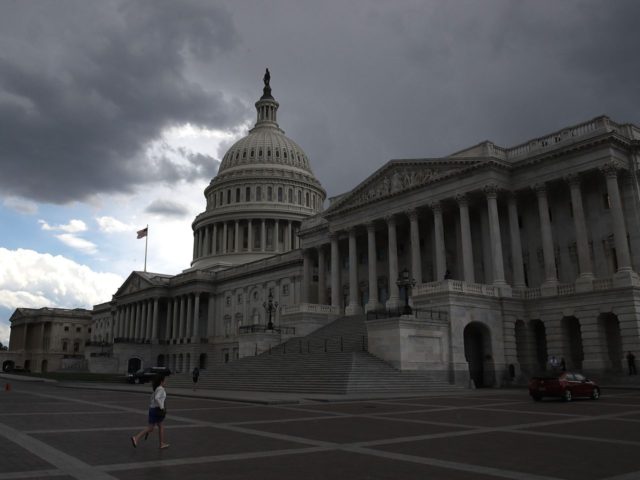Swamp Report: 430 Former Members of Congress Are
Post# of 52108

Are Lobbyists, Government Influencers < >

Former politicians regularly monetize their experience and contacts by becoming lobbyists, consultants, and joining other endeavors to influence government activities.
Peter Schweizer, president of the Government Accountability Institute and senior contributor at Breitbart News, explained the ubiquity of this phenomenon in episode three of his eponymous investigative video series.
In the latest edition of The Drill Down With Peter Schweizer, published at RealClearInvestigations on Wednesday, Schweizer highlights the following figures:
430 former politicians — both congressmen and senators — are now being paid to help shape government policies as lobbyists, consultants, and in other capacities.
60 percent — nearly two-thirds — of the 44 members who took new jobs after leaving Congress in 2019 now work in lobbying, consulting, or otherwise influencing government activities.
“Who says bipartisanship is dead in Washington?” jokingly asked Schweizer while highlighting former politicians of both parties who now “work to help special interests navigate the corridors of power in Washington.”
Featured examples of the “revolving door” phenomenon used by Schweizer to illustrate his thesis include former Speaker of the House John Boehner (R-OH) and Reps. Joe Crowley (D-NY), Lynn Jenkins (R-KS), Billy Tauzin (R-LA), and Anthony Weiner (D-NY).
Former Senate Majority Leaders Tom Daschle (D-SD) and Trent Lott (R-MS) are also highlighted in Schweizer’s video report, including former Sen. John Breaux (D-LA).
Rep. Alexandria Ocasio-Cortez (D-NY) and Sen. Ted Cruz (R-TX) have expressed interest in working together on legislation to prohibit former members of Congress from becoming lobbyists.
Schweizer explained the status quo of legal restrictions on former representatives and senators becoming lobbyists: “Currently, the law requires, simply, a ‘cooling off period,’ where a representative cannot register as a lobbyist for one year after leaving office, and if you’re a senator it’s for two years. But after that year is up, things heat up for former members of Congress. And quickly.”
 (0)
(0) (0)
(0)